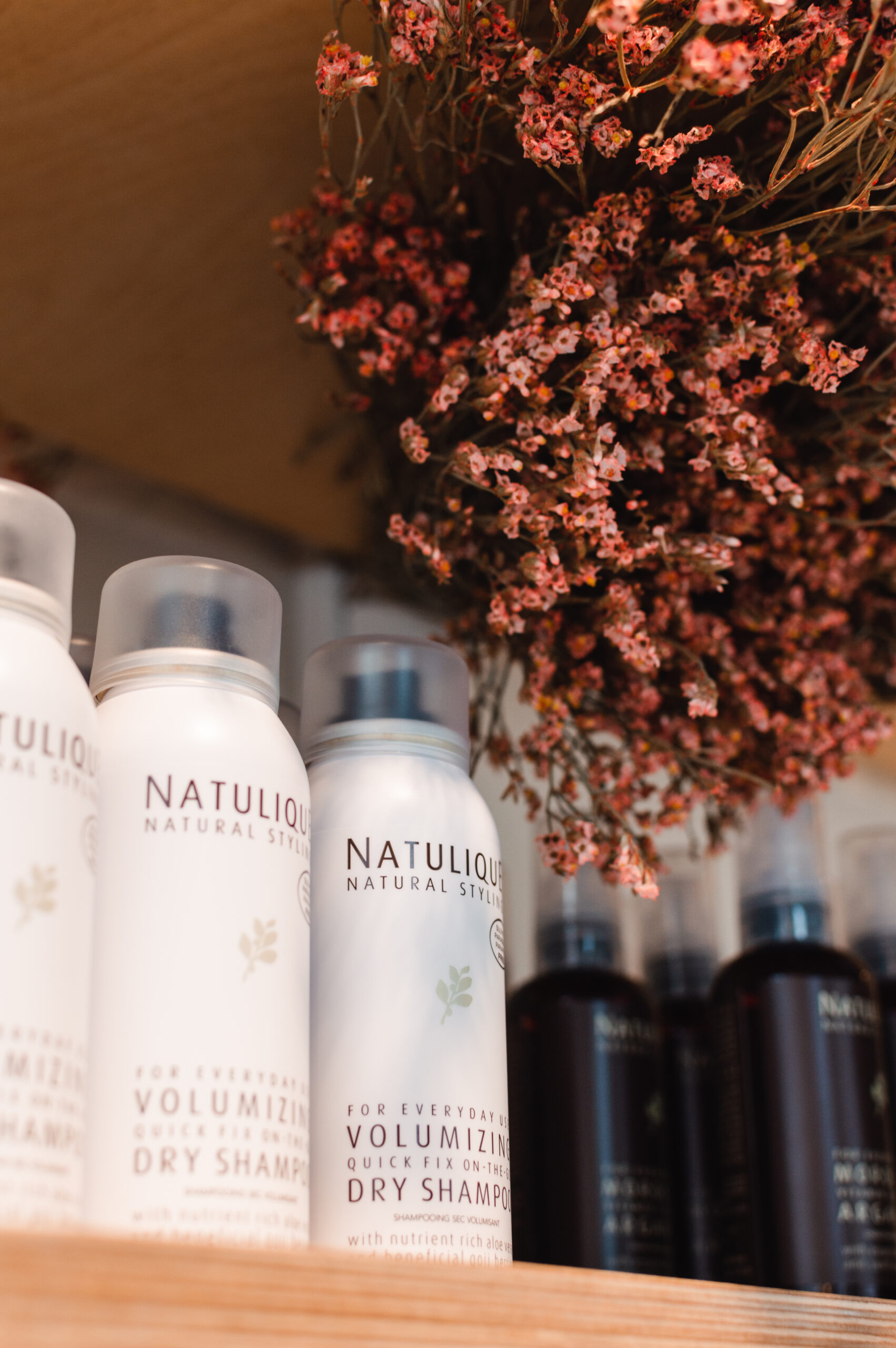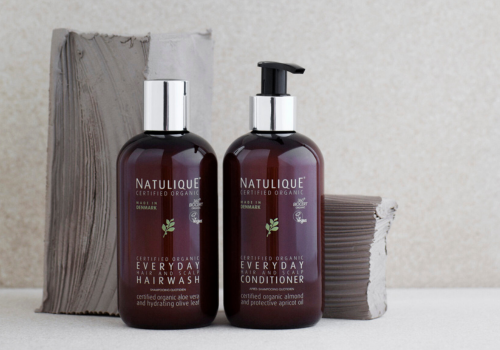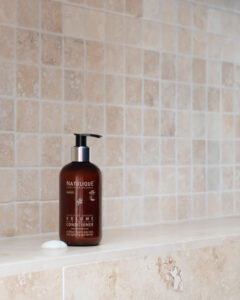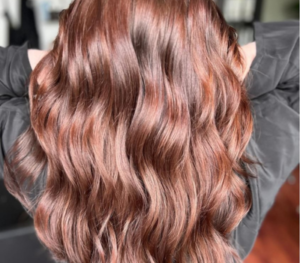Definition of conditioner
Conditioner is a hair care product designed to complement the action of shampoo. Unlike shampoo, which primarily cleanses the hair and scalp, conditioner is designed to nourish, moisturize and protect the hair fiber after washing. Used regularly, it can significantly improve hair health and appearance.
Conditioner composition
Conditioner composition varies according to brand and hair type. In general, it contains moisturizing agents such as glycerine or panthenol, proteins to strengthen the hair fiber, and silicones to facilitate styling and add shine. Some natural formulations incorporate vegetable oils such as argan or coconut oil, enriched with vitamins and antioxidants.
Types of conditioner available on the market
- Moisturizing conditioners : Ideal for dry, damaged hair, they provide the moisture needed to restore softness and suppleness.
- Volumizing conditioners : Designed for fine hair, these products add volume without weighing hair down.
- Detangling conditioners : Perfect for long or knot-prone hair, they make brushing easier and reduce breakage.
- Colored conditioners : Specially formulated for color-treated hair, they help preserve color radiance and prevent pigments from fading quickly.
Main role of conditioner
Moisturizing and nourishing hair
How conditioner works to moisturize
Conditioner works by sealing the hair cuticle, helping to retain moisture and nutrients within the hair fiber. Active ingredients penetrate the cuticle and restore moisture levels, often lost during washing. It's this moisturizing action that keeps hair soft and shiny.
The importance of moisturizing for healthy hair
Hydration is essential for healthy hair. Well-moisturized hair is less prone to split ends, breakage and loss of shine. It is also more flexible and elastic, reducing the risk of mechanical damage when brushing or styling. Good hydration helps maintain hair's structural integrity and overall appearance.
Makes styling easier
The effectiveness of conditioner in detangling
One of the main functions of conditioner is to make hair easier to detangle. By smoothing and softening the cuticle, it makes hair easier to comb and style. This is particularly useful for long, curly or frizzy hair that tends to tangle easily.
Impact on reducing hair breakage
By making hair more supple and resistant, conditioner helps reduce breakage. Gently detangled hair is less subject to the mechanical stresses that can cause breakage. Used regularly, conditioner becomes an invaluable ally in keeping hair strong and resistant to daily aggressions.
Additional benefits of conditioner
Protection against external aggression
The role of conditioner in heat protection
One of the major benefits of conditioner is its ability to protect hair from thermal aggression. Styling tools such as hair dryers, straightening irons or curling irons can severely damage the hair fiber. The conditioning agents in conditioner form a protective barrier around the hair, reducing the impact of heat. This not only helps prevent breakage, but also keeps hair shiny and soft.
Conditioner as a barrier against environmental pollutants
In addition to its protective role against heat, conditioner also acts as a barrier against environmental pollutants. Pollution, dust and other contaminants can build up on hair and cause long-term damage. Conditioner's nourishing and protective ingredients help seal the cuticle and prevent these harmful particles from penetrating the hair fiber. The result is hair that is more resistant to external aggression and healthier overall.
Improved hair texture and appearance
The smoothing effect of conditioner
Using conditioner regularly can greatly improve hair texture. Conditioning agents smooth the cuticle, making hair softer to the touch and shinier to the eye. This smoothing action also reduces frizz, which is particularly beneficial for people with frizzy or curly hair. By smoothing each strand, conditioner enables hair to better reflect light, giving a more radiant, healthy appearance.
Static electricity reduction
Another benefit of conditioner is its ability to reduce static electricity. Dry, damaged hair tends to become electric, especially in cold or dry weather. The moisturizing and nourishing ingredients in conditioner help balance hair's natural moisture and prevent static build-up. The result is more disciplined, more manageable hair.
Longer-lasting hair treatments
Optimizing color hold
For those who color their hair, conditioner can play a crucial role in the longevity of the treatment. Special formulas for colored hair contain UV filters and protective agents that preserve color pigments, reducing fading due to sun exposure and frequent washing. By strengthening the cuticle and providing adequate protection, conditioner helps maintain vibrant color for longer.
Support for smoothing and anti-frizz treatments
Many hair treatments, such as Brazilian straightening or anti-frizz treatments, require special care to prolong their effects. Using the right conditioner for these treatments helps maintain the results achieved. Nourishing and revitalizing ingredients support the structure of treated hair, reducing the need for frequent touch-ups. This makes conditioner an essential complement for those investing in professional hair treatments.
Contributing to overall scalp health
Hydrates and soothes the scalp
Conditioner not only nourishes hair, but can also contribute to scalp health. Some formulas enriched with soothing ingredients such as aloe vera or chamomile offer extra moisture to the scalp, relieving itching and irritation. A healthy scalp is the foundation of healthy hair, and regular use of a suitable conditioner can help prevent problems such as dryness and dandruff.</p
See also: How can I treat my sensitive scalp with natural products?
Additional benefits of conditioner
Protection against external aggression
The role of conditioner in heat protection
One of the major benefits of conditioner is its ability to protect hair from thermal aggression. Styling tools such as hair dryers, straightening irons or curling irons can severely damage the hair fiber. The conditioning agents in conditioner form a protective barrier around the hair, reducing the impact of heat. This not only helps prevent breakage, but also keeps hair shiny and soft.
Conditioner as a barrier against environmental pollutants
In addition to its protective role against heat, conditioner also acts as a barrier against environmental pollutants. Pollution, dust and other contaminants can build up on hair and cause long-term damage. Conditioner's nourishing and protective ingredients help seal the cuticle and prevent these harmful particles from penetrating the hair fiber. The result is hair that is more resistant to external aggression and healthier overall.
Improved hair texture and appearance
The smoothing effect of conditioner
Using conditioner regularly can greatly improve hair texture. Conditioning agents smooth the cuticle, making hair softer to the touch and shinier to the eye. This smoothing action also reduces frizz, which is particularly beneficial for people with frizzy or curly hair. By smoothing each strand, conditioner enables hair to better reflect light, giving a more radiant, healthy appearance.
Static electricity reduction
Another benefit of conditioner is its ability to reduce static electricity. Dry, damaged hair tends to become electric, especially in cold or dry weather. The moisturizing and nourishing ingredients in conditioner help balance hair's natural moisture and prevent static build-up. The result is more disciplined, more manageable hair.
Longer-lasting hair treatments
Optimizing color hold
For those who color their hair, conditioner can play a crucial role in the longevity of the treatment. Special formulas for colored hair contain UV filters and protective agents that preserve color pigments, reducing fading due to sun exposure and frequent washing. By strengthening the cuticle and providing adequate protection, conditioner helps maintain vibrant color for longer.
Support for smoothing and anti-frizz treatments
Many hair treatments, such as Brazilian straightening or anti-frizz treatments, require special care to prolong their effects. Using the right conditioner for these treatments helps maintain the results achieved. Nourishing and revitalizing ingredients support the structure of treated hair, reducing the need for frequent touch-ups. This makes conditioner an essential complement for those investing in professional hair treatments.
Contributing to overall scalp health
Hydrates and soothes the scalp
Conditioner not only nourishes hair, but can also contribute to scalp health. Some formulas enriched with soothing ingredients such as aloe vera or chamomile offer extra moisture to the scalp, relieving itching and irritation. A healthy scalp is the foundation of healthy hair, and regular use of a suitable conditioner can help prevent problems such as dryness and dandruff.</p
Frequently asked questions (FAQ) about conditioner
Can conditioner replace a hair mask?
Although the two products have similar functions, they are not interchangeable. Conditioner is generally used after each wash to maintain moisture and facilitate styling, while hair mask is a more intensive treatment applied less frequently to repair deep damage and intensely nourish hair.
Is it necessary to use a conditioner with every wash?
Yes, it's a good idea to use conditioner after every wash to keep hair moisturized and healthy. It also helps seal the cuticle after cleansing, reducing the risk of damage and dehydration.
Which hair types benefit most from the use of conditioner?
All hair types can benefit from the use of conditioner, but it is particularly beneficial for dry, damaged, color-treated or chemically-treated hair. Curly hair, which is often drier, also benefits greatly from regular use of conditioner.
Can you use too much conditioner?
Yes, as with any hair care product, excessive use of conditioner can weigh hair down and cause product build-up. It's important to follow the manufacturer's instructions and adapt the amount used to the length and thickness of your hair.
How to choose the right conditioner?
Choosing the right conditioner depends on your hair type and specific needs. Look for moisturizing ingredients like glycerin or panthenol for dry hair, proteins to strengthen fragile hair, and silicone-free formulas if you prefer more natural options. Read labels carefully to find a product suited to your hair goals.
Conclusion
An indispensable ally for healthy hair
Conditioner is undoubtedly an essential product in any hair routine. Its ability to moisturize, nourish, protect and improve hair texture makes it an essential ally in maintaining healthy, radiant hair. Whether your hair is dry, fine, curly or color-treated, there's a conditioner to suit your specific needs.
Make conditioner part of your hair routine
To get the most out of your conditioner, make sure you choose the right formula for your hair and apply the product correctly, concentrating on lengths and ends. With regular use, you'll notice a significant improvement in the health and appearance of your hair.
In conclusion, conditioner is not just a luxury, but a crucial step in maintaining healthy hair. Incorporate it into your hair routine and enjoy all its benefits for radiant hair day after day.





